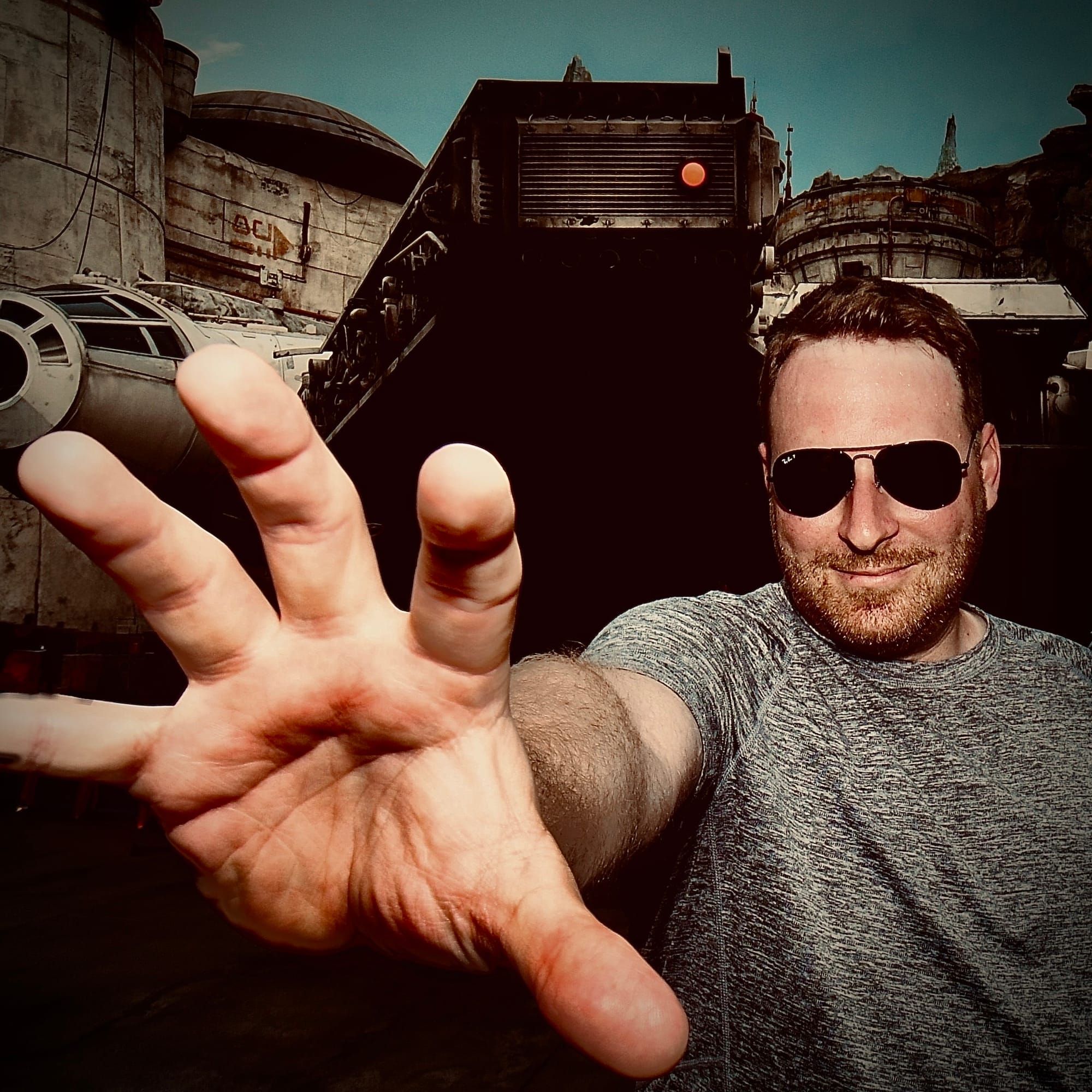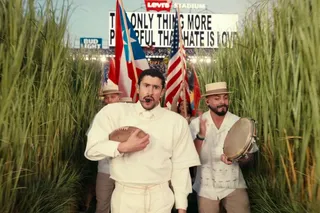
There was a time when creativity and passion ruled the web. People didn't set up blogs or forums to become influencers or make money. They did those things because they were fun and because they connected people over common interests. The internet used to be fun.
Opening the Mystery Box
In 2004, I was beginning my final year of college and considering what being an adult was all about. That Fall, a little show called LOST premiered on ABC at precisely the right time, not just for me but for the entire world.
LOST, created by JJ Abrams, is a classic Mystery Box show. The show drops clues and provides just enough information to keep the viewer guessing, only to make it to the next round of clues and an evolution of the mystery.
The timing for LOST was perfect. Blogs were at their peak of popularity, and the show's mysteries led to a host of new sites that analyzed each episode. Millions of people would watch the show live and then furiously start hitting refresh on their favorite LOST-blogger's site to get the week's recap, analysis, and theories.
I had a favorite LOST blog with a punny name that, unfortunately, has been lost in my memory. The author posted instant reactions once the show aired and then came back mid-week with a deep-dive analysis that led to predictions for what would come next. (If you had a favorite LOST blog and can remember the name, let me know.)
There was a community built in the comments, adding extra evidence or proposing new theories or interpretations of our own. We shared our enjoyment together week after week, and the blogger did it for the same reason we were all there. It wasn't ads, algorithmic fame, or fortune, but a connection with others over a passion for LOST.
LOST happened at just the right time in internet history. Prestige TV was still a weekly live experience, capturing collective attention together. Blogs were having a heyday, and TV-obsessed writers were ready to write thousands of words weekly on a show they loved.
I don't know if a similar experience is possible today. The combination of variables is different as shows are largely streamed on-demand at your own leisure. Once abundant and unique, independent blogs were largely replaced by corporate social platforms that sprung up in the late 00s and early 10s. That perfect era of the internet that LOST experienced ushered in the algorithmic, ad-driven online world we’ve been stuck in ever since.
Thankfully, 2023 saw the ice begin to thaw, and the creative, personal internet of yesteryear started to emerge.
Leaving Platforms Behind
Elon Musk purchased Twitter at just the right time in history. His decimation of a beloved site ushered in the end of the platform era as we know it. People left corporate social media in droves and sought refuge in the Fediverse, a collection of independent but connected internet communities. Mastodon grew by leaps and bounds, and, more importantly, blogs and independent websites started reemerging!
For the first time in a long time, we're able to truly make the internet personal again. It all starts with leaving the corporate platforms and starting (or relaunching) our own things.
Joan Westenberg, tech journalist, hit the nail on the head with this post:
Own your own website. Own your mailing list. Own your newsletter. Own your blog and prioritise your RSS feed.
This is the stuff that works in the long term.
Chasing virality on every new shiny platform is a waste of time.
The platforms wanted us on their shiny new systems so they could capture our eyeballs and serve us ads. We accepted it because those platforms initially told us that new was better. The argument evolved once everyone we knew was there, and leaving meant disconnecting. The platforms trapped us, and they knew it.
The irony of ironies is that we lost nearly twenty years of internet growth and creativity by being locked into a few ad-driven spaces that collectively made us more polarized than ever before. Owning our own websites is an effective long-term strategy and an antidote to the algorithmic world. Frankly, it makes the internet fun again.
Anil Dash, writing for Rolling Stone, could not have constructed a better explanation:
There should be lots of different, human-scale alternative experiences on the internet that offer up home-cooked, locally-grown, ethically-sourced, code-to-table alternatives to the factory-farmed junk food of the internet. And they should be weird.
I am all in on this version of the internet. Give me funky colors and styles! Give me originality! Give me that "home-cooked, locally-grown, ethically-sourced, code-to-table internet" full of fun, weird, and creative sites!
Reaching New Audiences
The platforms have us so locked in that audience building is a legitimate fear about launching a personal site. Worrying about how to build an audience is the wrong focus. It's the numbers-driven mindset instilled by the platforms to keep us in their clutches. Instead, we should be focused on what we're creating.
I found my favorite LOST blog through recommendations from other aficionados. It wasn't served to my feed based on followed hashtags or some other algorithmic dataset. I found the blog because other humans wanted to share something they enjoyed. Old-school blogs found readers word of mouth and a little luck. How is that different from how discovery works now, hoping an algorithm will somehow land us in front of people?
The difference with a more personal approach is that humans are part of the equation again. Human recommendations are far more meaningful than any algorithmic amplification. I click on far more articles and sites recommended in newsletters I follow than in my app feeds. If I know a human I trust thinks I’ll like something and they took the time to highlight it, I figure I should give it a shot.
A personal site is true platform independence. With new social networks rising all over the place, it's highly unlikely we'll have a single, centralized hub again any time soon. And that's a good thing! Your personal site can be shared everywhere and will connect with people regardless of their platforms.
The personal internet is the best internet.
Making the Internet Personal Again
If I had to summarize everything into one set of recommendations for 2024, it'd mirror what Joan and Anil said above:
- Build a website.
- Start a newsletter.
- Own your web.
- Have fun, experiment, code.
- Support individual creators, not corporations.
- Don't worry about marketing; worry about creating something personal.
- Have fun.
Here's to a great new year filled with new possibilities and a once-in-a-generation opportunity to make the internet personal again!
A Look at 2023
2023 was a year of transition for me. Instead of rehashing the reasons here, I invite you to read Rising From the Rubble of Institutions, which is my favorite thing I wrote in 2023.
I published 50 Write Now interviews with authors, including Washington Post journalist Taylor Lorenz, Fourth Wing author Rebecca Yarros, and the legendary R.L. Stine!
On Medium, I nominated 121 articles, 92 of which (76%) were accepted for Boost throughout the platform.
Most importantly, I moved my publishing and newsletter to a self-hosted, independently-owned site powered by Ghost. I'm no longer beholden to a platform with corrupt morals and can curate the web I want.
What’s Coming in 2024
Before we close out today, here are two things I'm looking forward to in 2024:
The Writing Cooperative is launching four new columns this month from Steven Toews, Sandra Wendel, Cara J. Stevens, and Leslie Arambula. Check out their column descriptions and look for their first issues soon.
I'm going to revise my book. Most of the book is timeless, but some parts just bug me and need updating. Like, there's an entire chapter about using Twitter to build an audience, and, well, yikes. I don't know when I'll do this, but sometime this year. Stay tuned.




